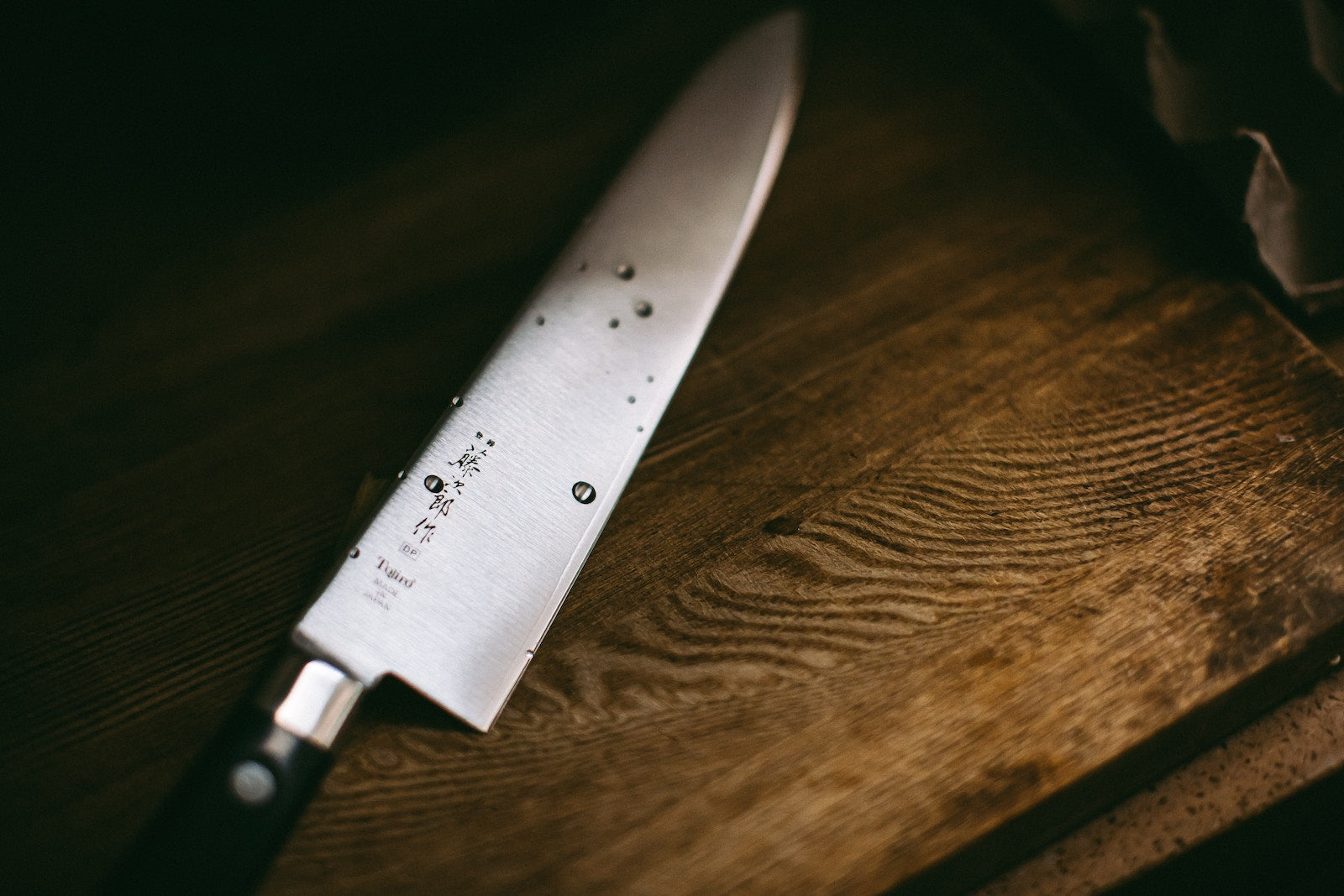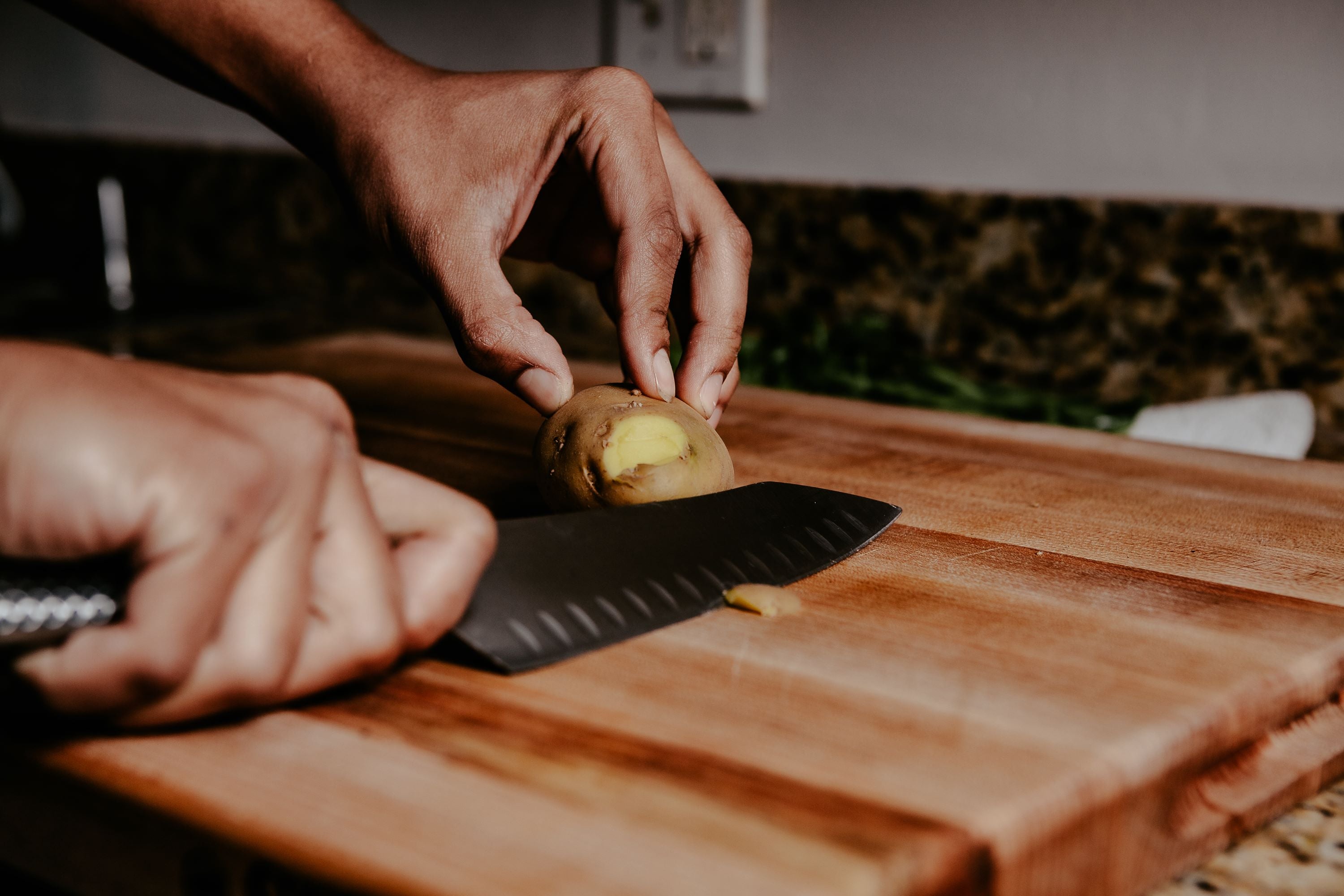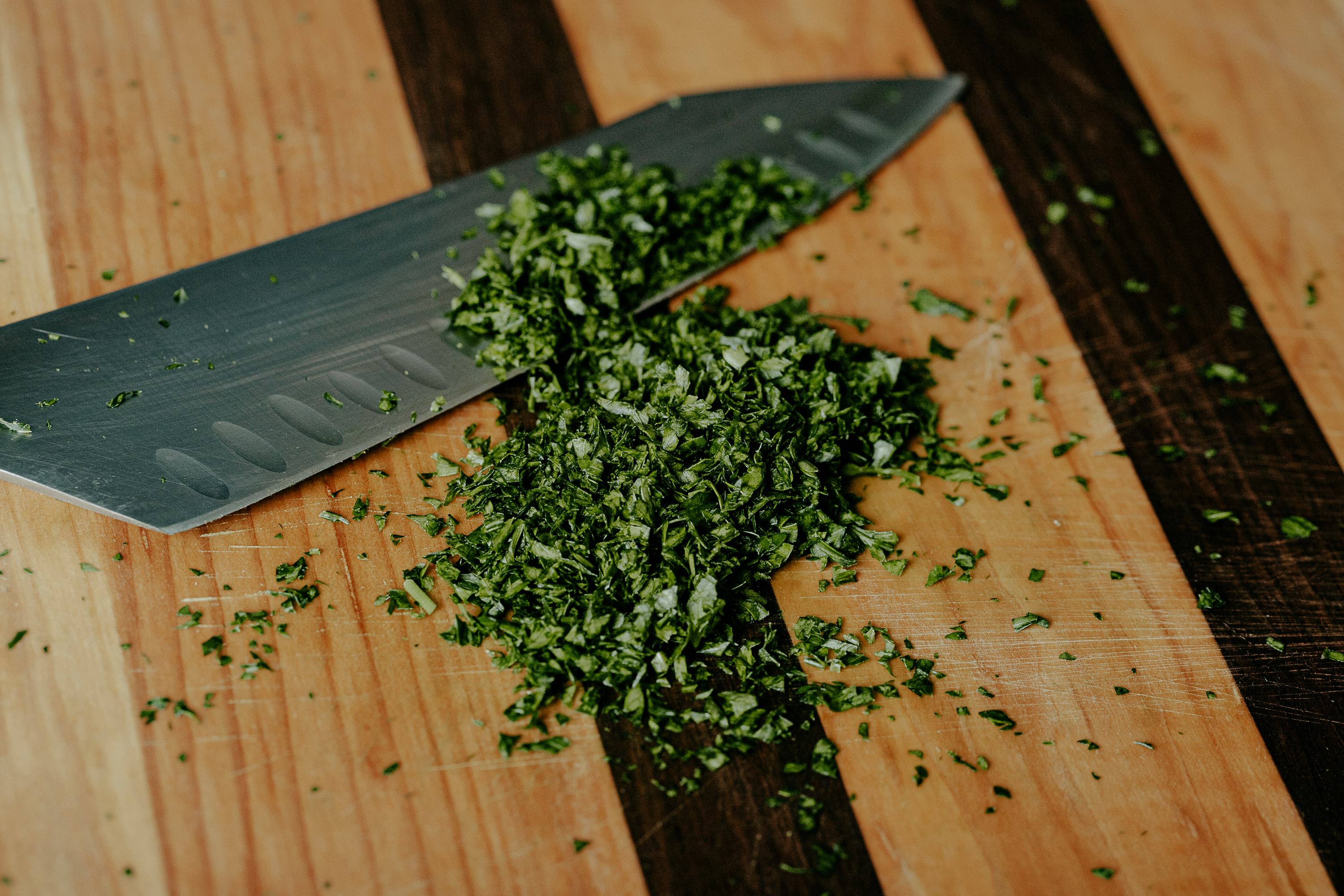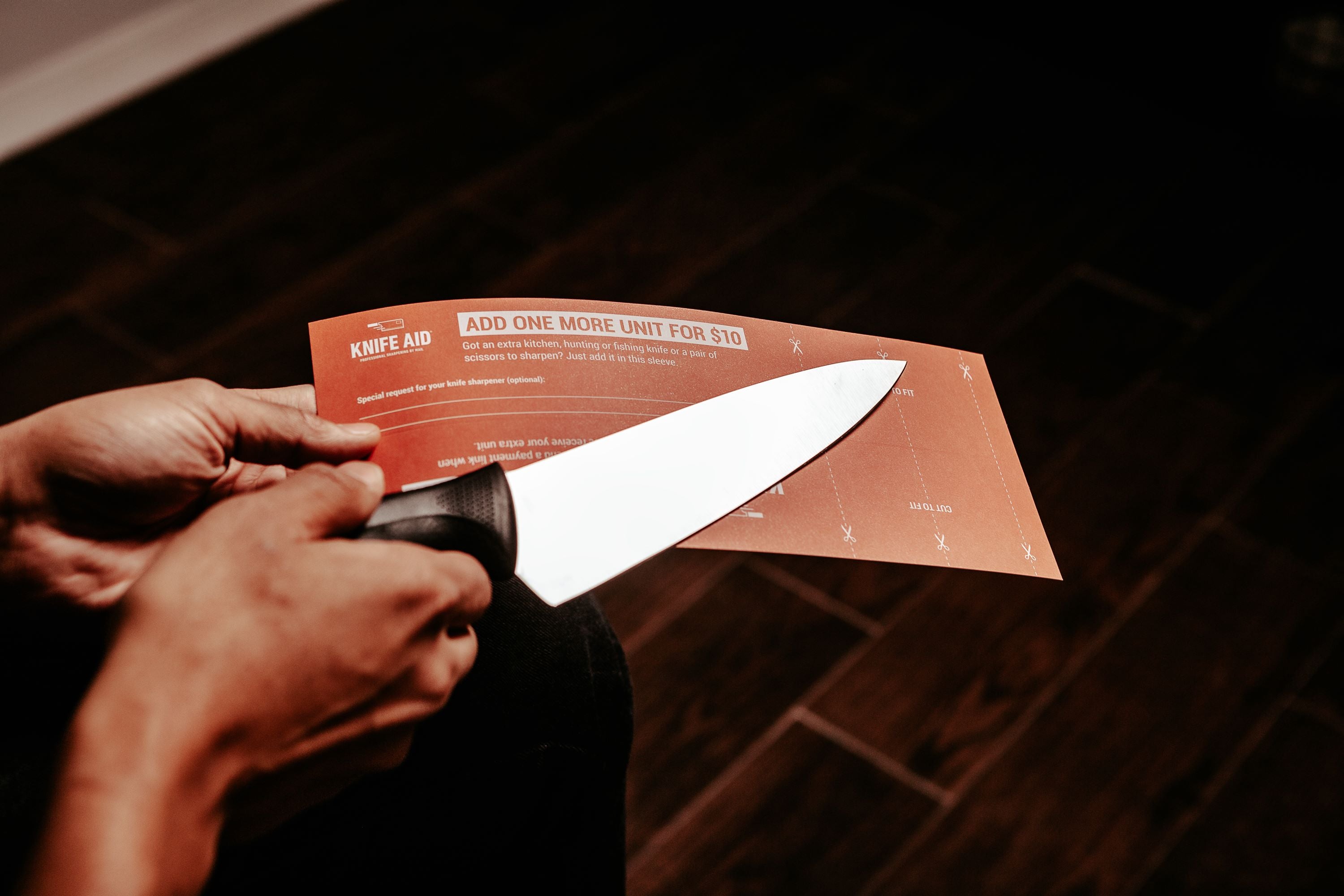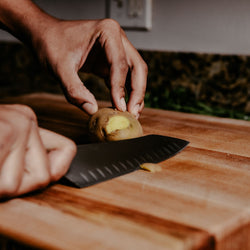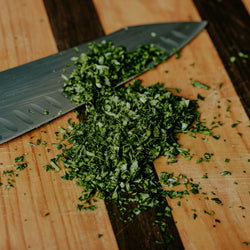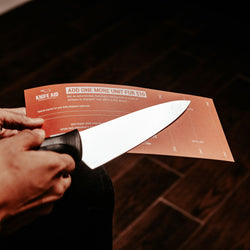How To Maintain Your Knives
SHARPENING
Depending on how much you use your knives, they need professional sharpening every 6 to 12 months. A professional knife smith will determine the correct angle for your knife’s beveled edge. They will reinstate its original angle by taking off very small amounts of metal from the blade to create a new edge. Any dents, burrs or irregularities can be taken out of the blade with this technique. Even broken tips can be fixed!
Let’s say you just had your knives professionally sharpened. They are all shiny and new, sharp as they were on the day you bought them - or even sharper. But how do you maintain your knives?
HONING
The next step after professionally sharpening knives is honing them before each use. Honing a knife will ensure its blade is centered and straight. Honing doesn’t really sharpen a blade, it re-aligns the edge and the blade will appear sharper. More on the difference between honing and sharpening here.
THE RIGHT TOOL FOR THE JOB
We hope that you would never use a kitchen knife to open a cardboard box (at least you wouldn’t want to tell our master knife smith and make a grown man cry…), this will dull your knives faster and even damage them. Make sure you have the basic set of most common knives in your kitchen to be prepared for whatever challenge comes up. Not sure which knife to use for what job? Check out the Knife Aid Knife Guide.
STORING
Make sure you store your knives so the cutting edge is protected. This will prolong the sharpness of the cutting edge and reduce injuries. After use, wash and dry knives by hand. Store them in either a knife block, in-drawer knife holder or even using edge guards to protect the cutting edge from coming in contact with other kitchen tools which will dull the blades faster.
CLEANING
DO NOT put your knives in the dishwasher! This is a common mistake. Dishwasher detergent is very abrasive, and the motion inside the dishwasher will cause the knife to rock from side to side and ruin its edge as well as the handle. Here are a few tips to bear in mind when cleaning your knives:
- Clean your knives as soon as you have used them
- Use warm, soapy water
- Only clean one knife at a time (‘soaking’ them in the sink with other items will bang their blades against each other and dull them, as well as increase your chance of injury drastically)
- Always hold the blade away from you
- If you are using a cloth or sponge, fold over the back of the blade (the so-called spine) and wipe from the heel of the blade towards the tip of the knife
- Thoroughly rinse your knife with water
- Apply the same precautionary measures as you did cleaning your knife when drying it
Cook. Eat. Sleep. Repeat.
Once you start noticing the blades on your knives starting to go dull, it is time to order that Knife Aid envelope again and start from the top.
